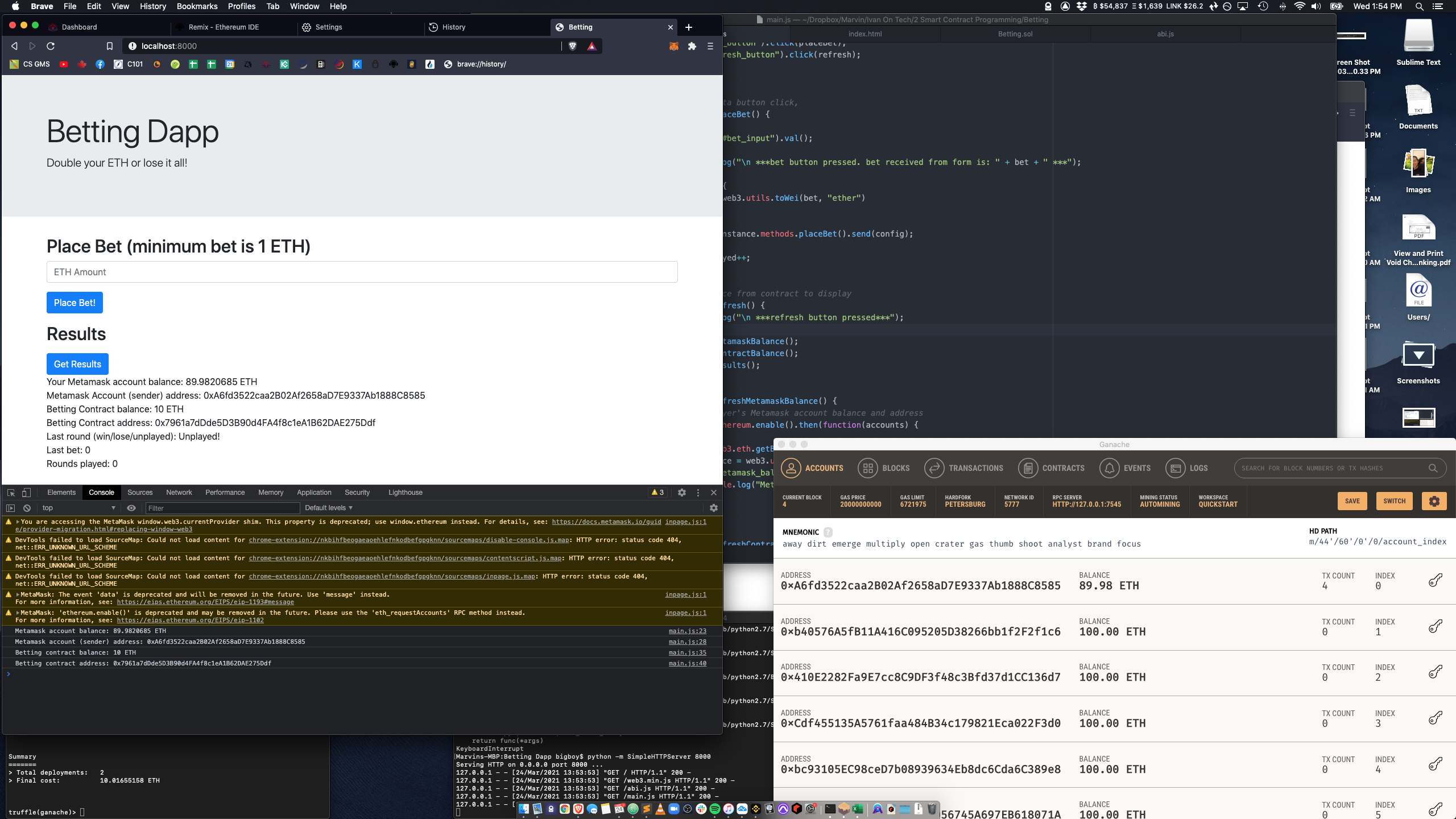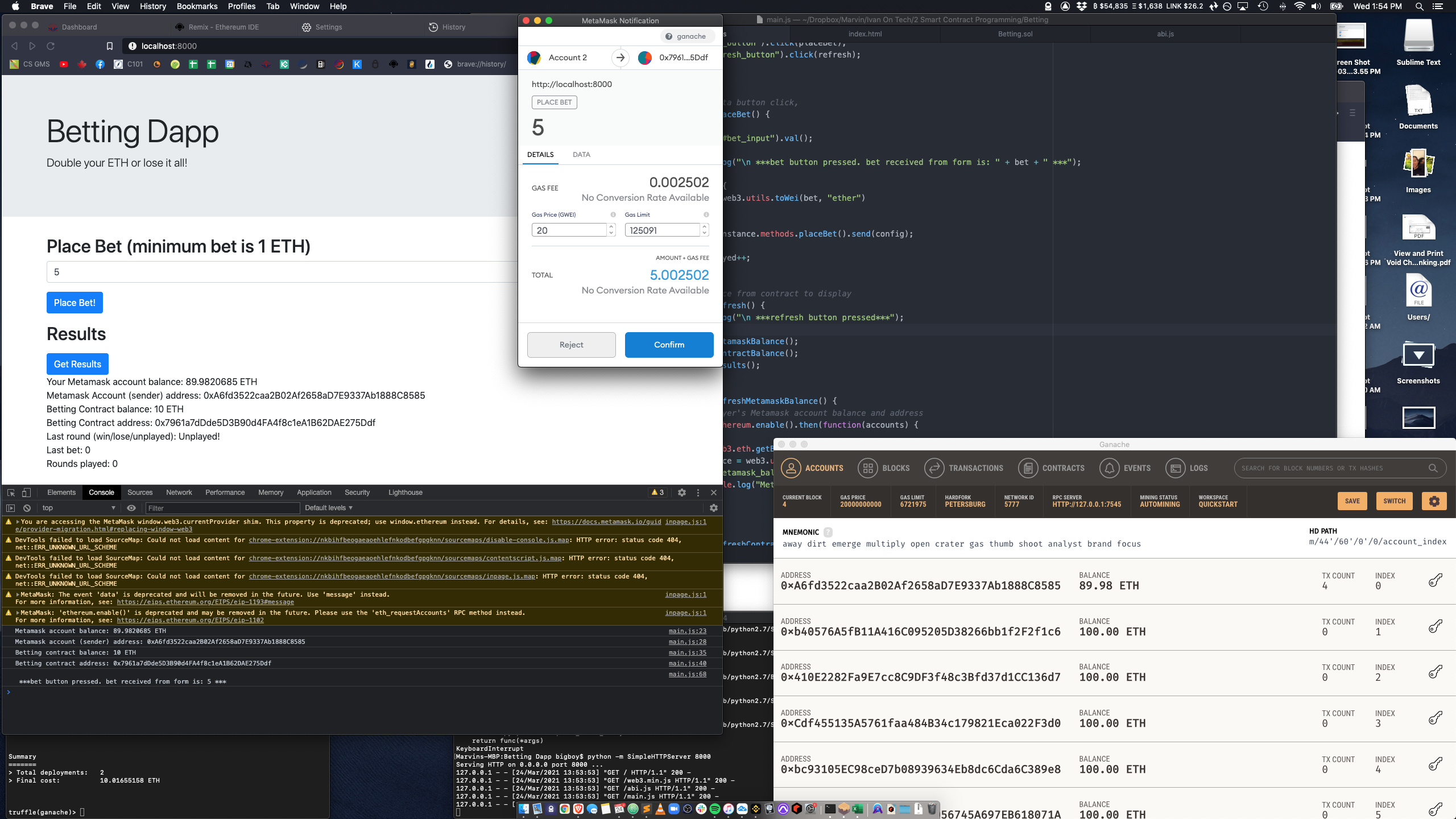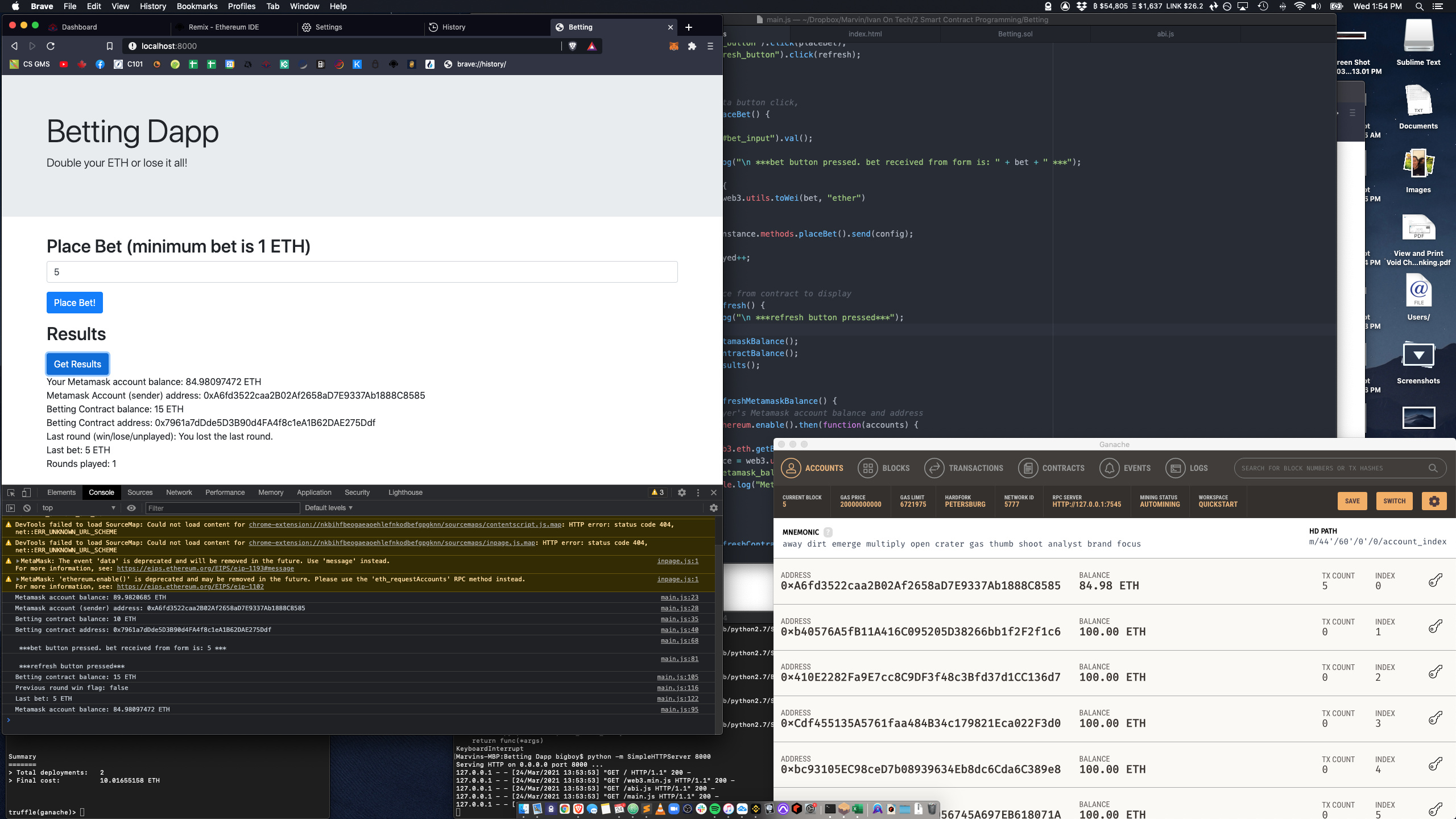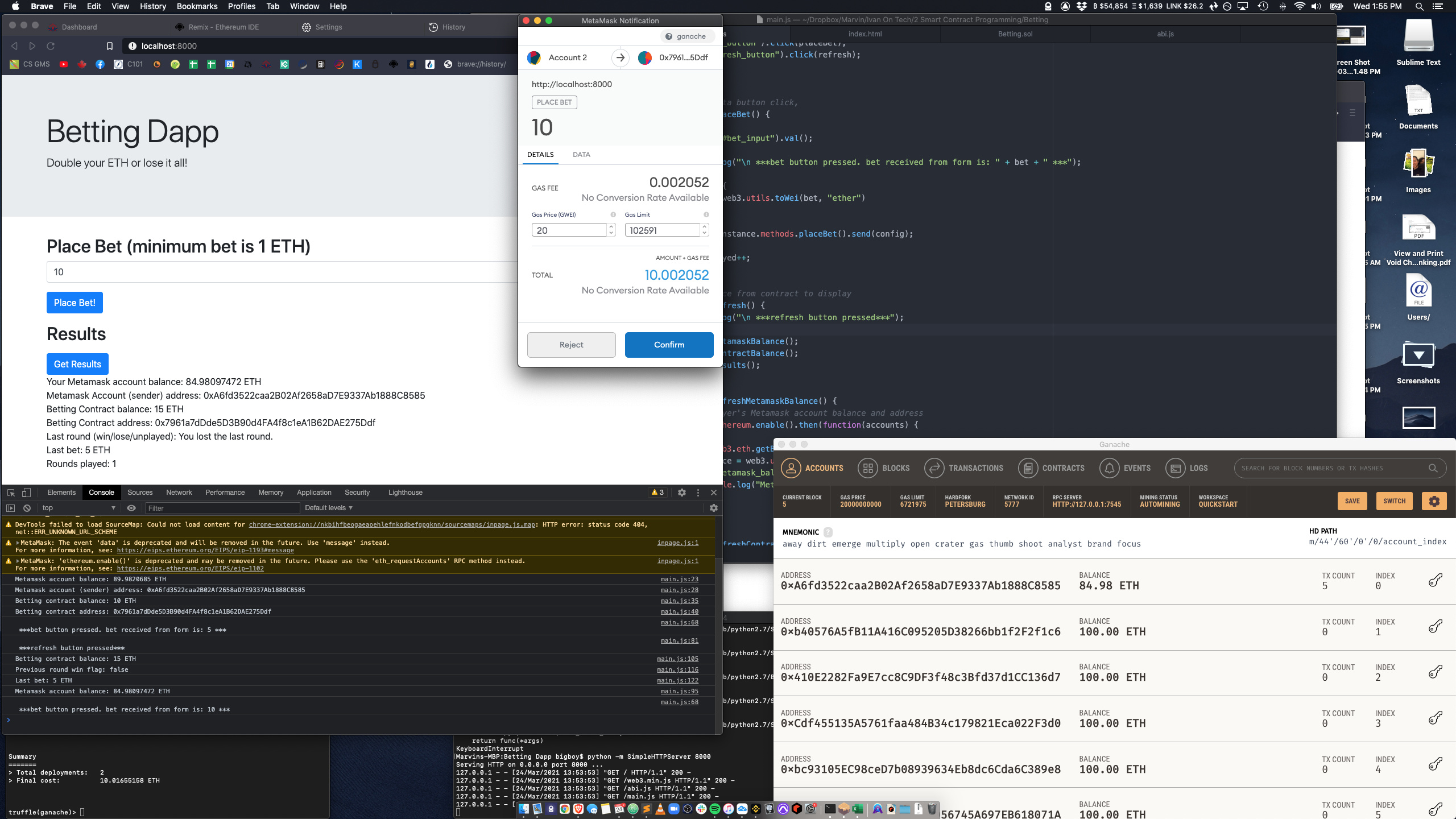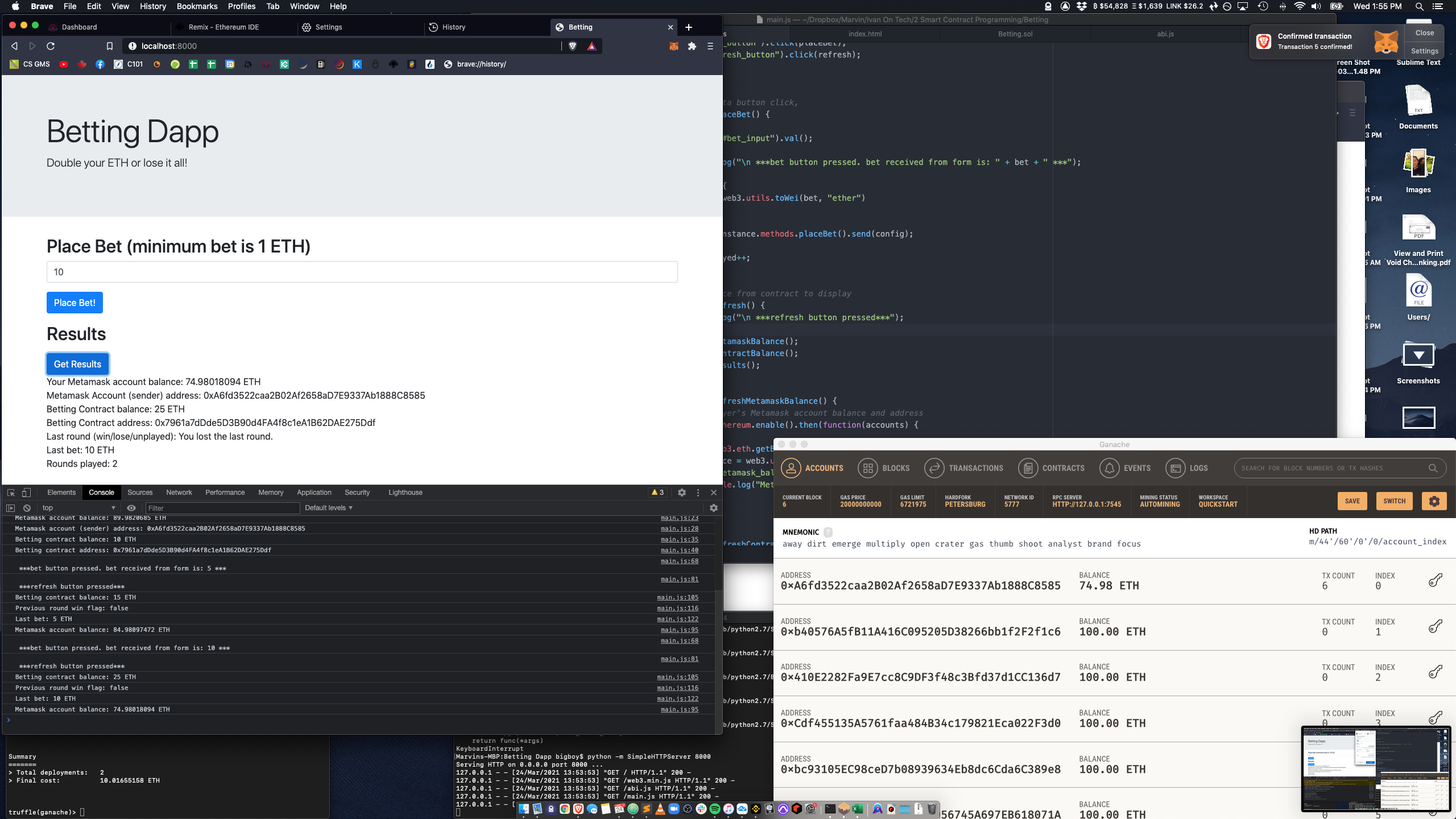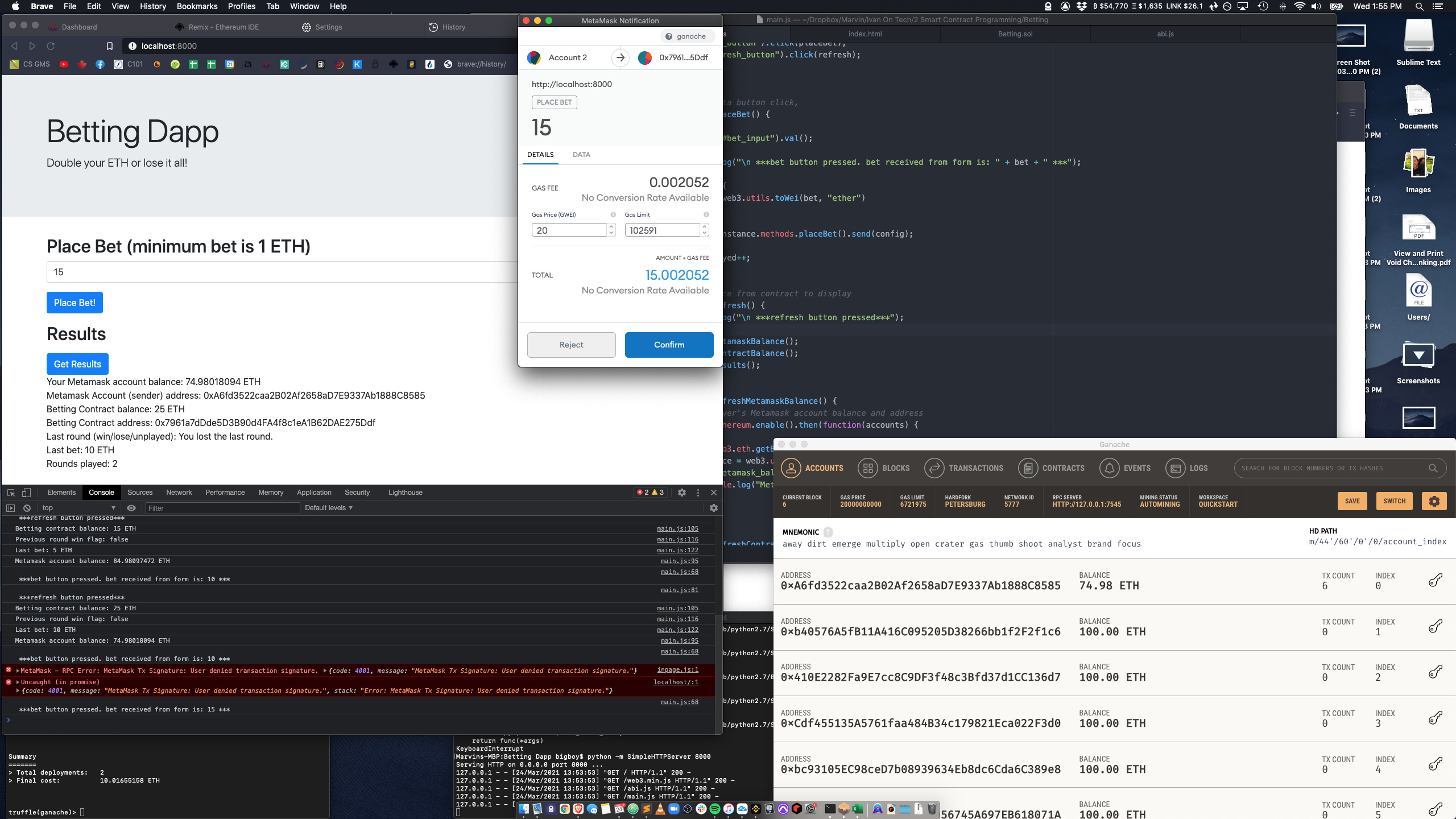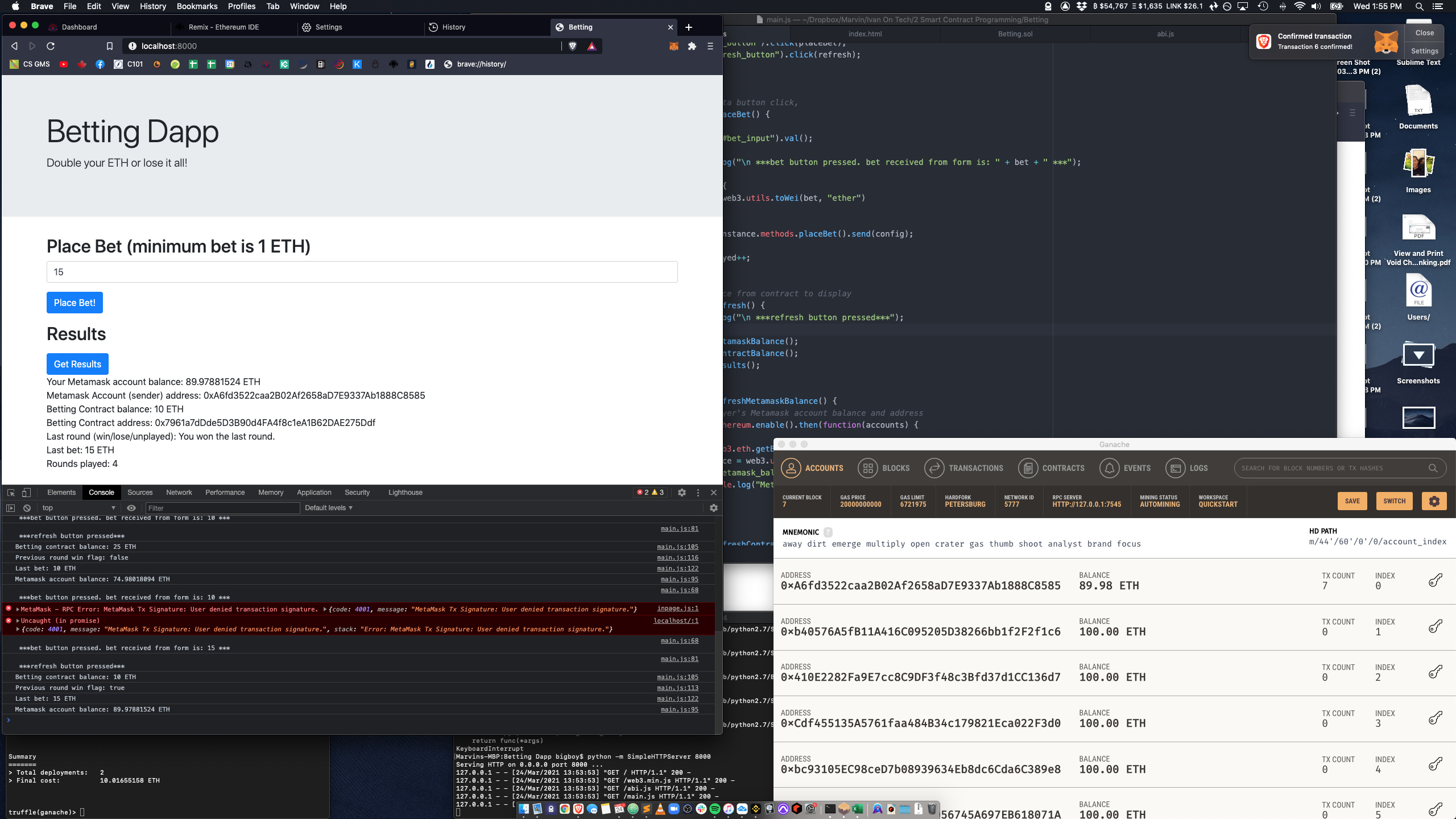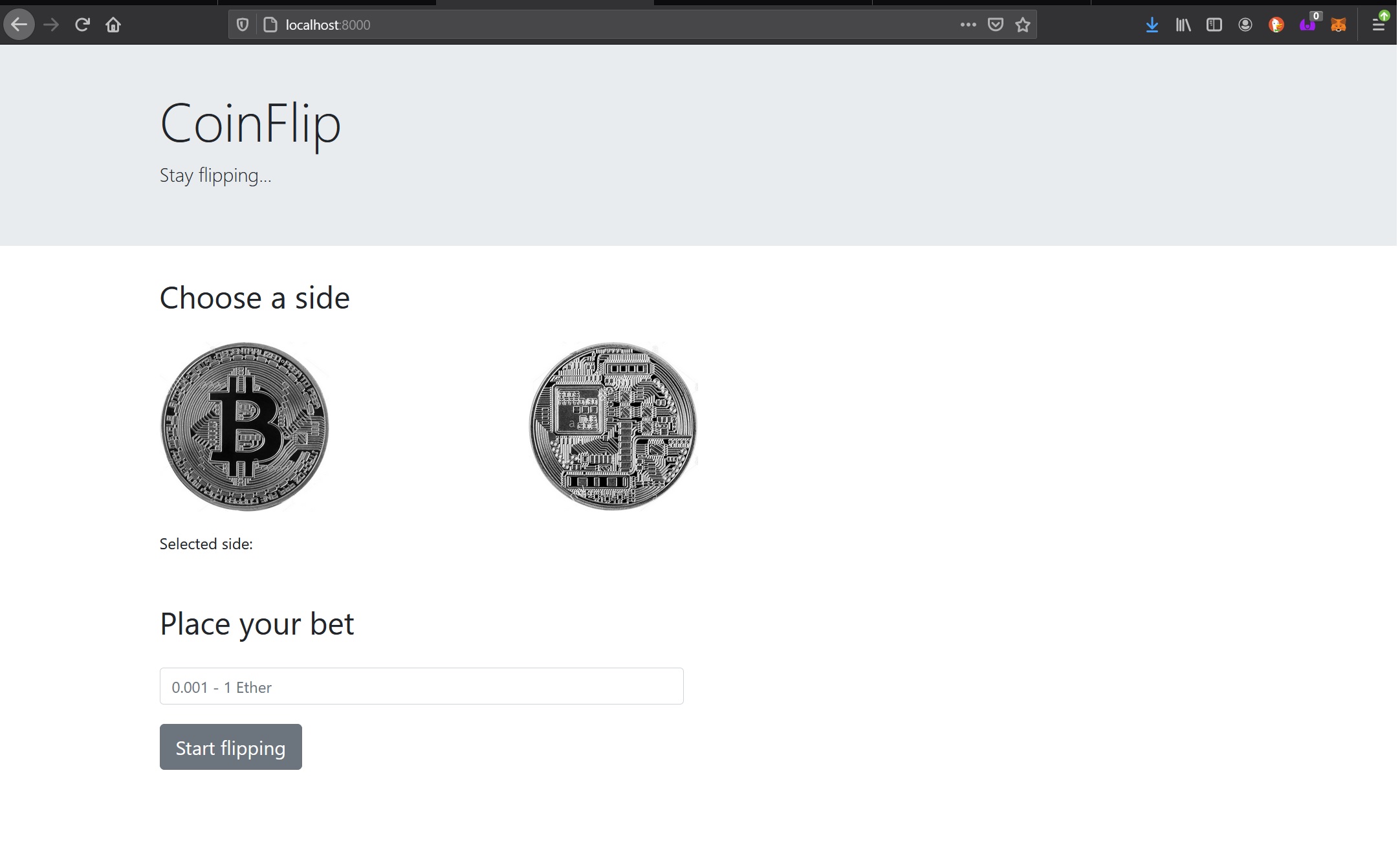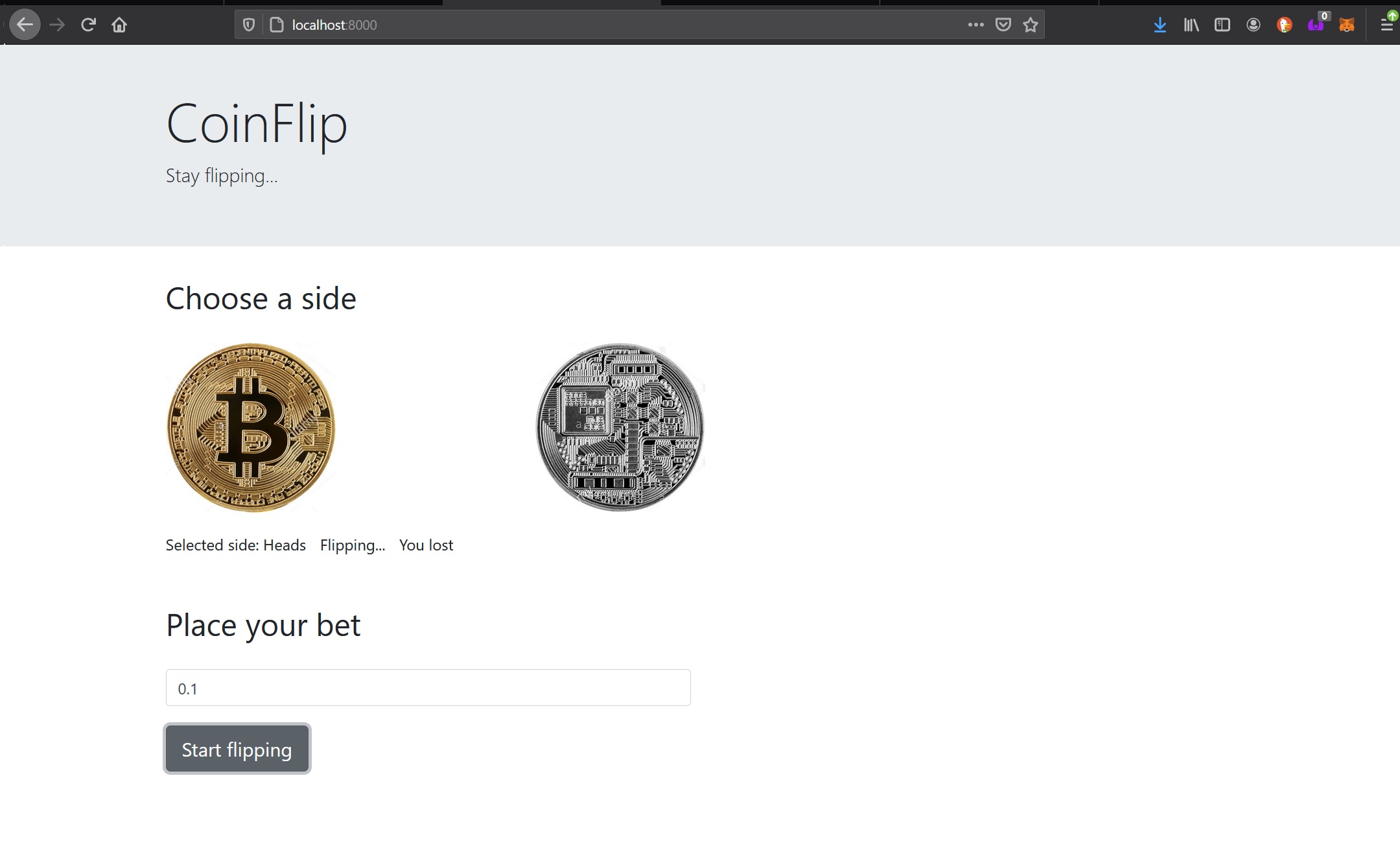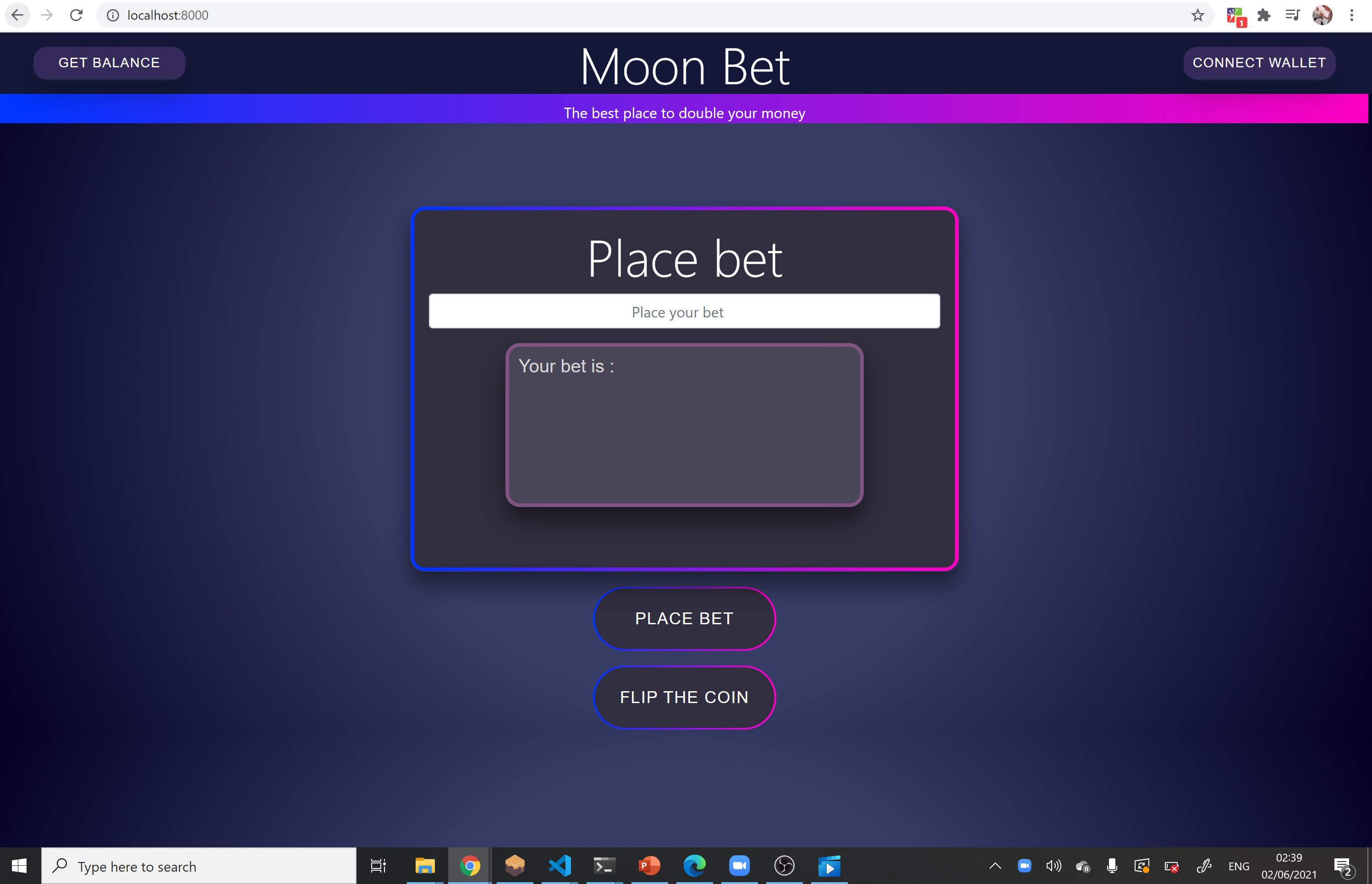I’m having trouble getting this to work in remix. All functions are working except for my coinFlip function.
getting:
[vm]
from: 0x5B3...eddC4
to: CoinFlip.coinFlip() 0x236...b00D8
value: 1000000000000000000 wei
data: 0x5ac...947cb
logs: 0
hash: 0x9c4...4cc5a
Debug
transact to CoinFlip.coinFlip errored: VM error: invalid opcode. invalid opcode The execution might have thrown. Debug the transaction to get more information.
I’ve been unsuccessful at debugging. @filip can you see any obvious errors in my coinFlip logic? What am I missing? My front end is almost totally wired up, I just can’t get this function to work!
pragma solidity ^0.5.12;
import "./Ownable.sol";
import "node_modules/openzeppelin-solidity/contracts/math/SafeMath.sol";
// Contract executes the following:
// Allows for ETH deposits
// Allows for ETH withdrawals
// Generates a random number 1 or 0 with 50/50 probability
// Executes a simulated coin flip, adding 100% of wager to balance if won, or deducting 100% of wager if lost
// emits Deposit, Withdrawal and Flip events
contract CoinFlip is Ownable {
using SafeMath for uint;
// Variables
uint private balance;
uint private bet;
uint private treasury;
uint private allPlayersBalance;
constructor() public payable {
uint initFund = msg.value;
treasury = treasury.add(initFund);
assert(treasury == address(this).balance);
}
// mappings
// Tracks the user balances stored in the contract
mapping (address => uint256) private playerBalances;
// players array
address payable[] public players;
// events
event Deposit(address user, uint256 amount, uint256 balance);
event Withdraw(address user, uint256 withdrawAmount, uint256 currentBalance);
event Bet(address user, uint256 bet, string outcome);
event Fund(uint value);
// structs
// modifiers
modifier costs(uint cost) {
require(msg.value >= cost, "The minimum bet is 0.001 Ether.");
_;
}
// functions
// player deposits funds into contract for betting use
function deposit() public payable returns(uint){
playerBalances[msg.sender] = playerBalances[msg.sender].add(msg.value);
allPlayersBalance = allPlayersBalance.add(msg.value);
assert(treasury + allPlayersBalance == address(this).balance);
emit Deposit(msg.sender, msg.value, playerBalances[msg.sender]);
return playerBalances[msg.sender];
}
// owner funds the treasury balance
function fundTreasury() public payable onlyOwner returns(uint) {
require(msg.value != 0);
treasury = treasury.add(msg.value);
emit Fund(msg.value);
assert(treasury + allPlayersBalance == address(this).balance);
return msg.value;
}
// querries the player's available balance in the contract
function playerBalance() public view returns (uint256){
return playerBalances[msg.sender];
}
// the total balance available in the contract treasury, these funds still belong to owner
function getBalance() public view returns (address, uint) {
return(address(this), treasury);
}
// the total funds in the contract, including all player funds + treasury funds
function totalBalance() public view returns (address, uint) {
assert(treasury + allPlayersBalance == address(this).balance);
return(address(this), address(this).balance);
}
// only player can withdraw their own funds, contract owner cannot withdraw or transfer these funds
function playerWithdraw(uint256 _amount) public payable {
require(playerBalances[msg.sender] >= _amount);
playerBalances[msg.sender] = playerBalances[msg.sender].sub(_amount);
allPlayersBalance = allPlayersBalance.sub(_amount);
msg.sender.transfer(_amount);
assert(treasury + allPlayersBalance == address(this).balance);
emit Withdraw(msg.sender, _amount, playerBalances[msg.sender]);
}
// only owner can withdraw the treasury funds
function withdraw(uint _amount) public onlyOwner returns(uint) {
require(_amount <= treasury);
msg.sender.transfer(_amount);
treasury = treasury.sub(_amount);
assert(treasury + allPlayersBalance == address(this).balance);
}
function random() public view returns (uint) {
return now % 2;
}
function coinFlip() public payable costs(0.001 ether) returns(string memory) {
require(msg.value <= playerBalances[msg.sender]);
require(msg.value <= treasury);
uint256 randomNum = random();
string memory outcome;
if(randomNum == 1){
outcome = "win";
playerBalances[msg.sender] = playerBalances[msg.sender].add(msg.value);
allPlayersBalance = allPlayersBalance.add(msg.value);
treasury = treasury.sub(msg.value);
} else {
outcome = "lose";
playerBalances[msg.sender] = playerBalances[msg.sender].sub(msg.value);
allPlayersBalance = allPlayersBalance.sub(msg.value);
treasury = treasury.add(msg.value);
}
assert(treasury + allPlayersBalance == address(this).balance);
emit Bet(msg.sender, msg.value, outcome);
return outcome;
}
}
